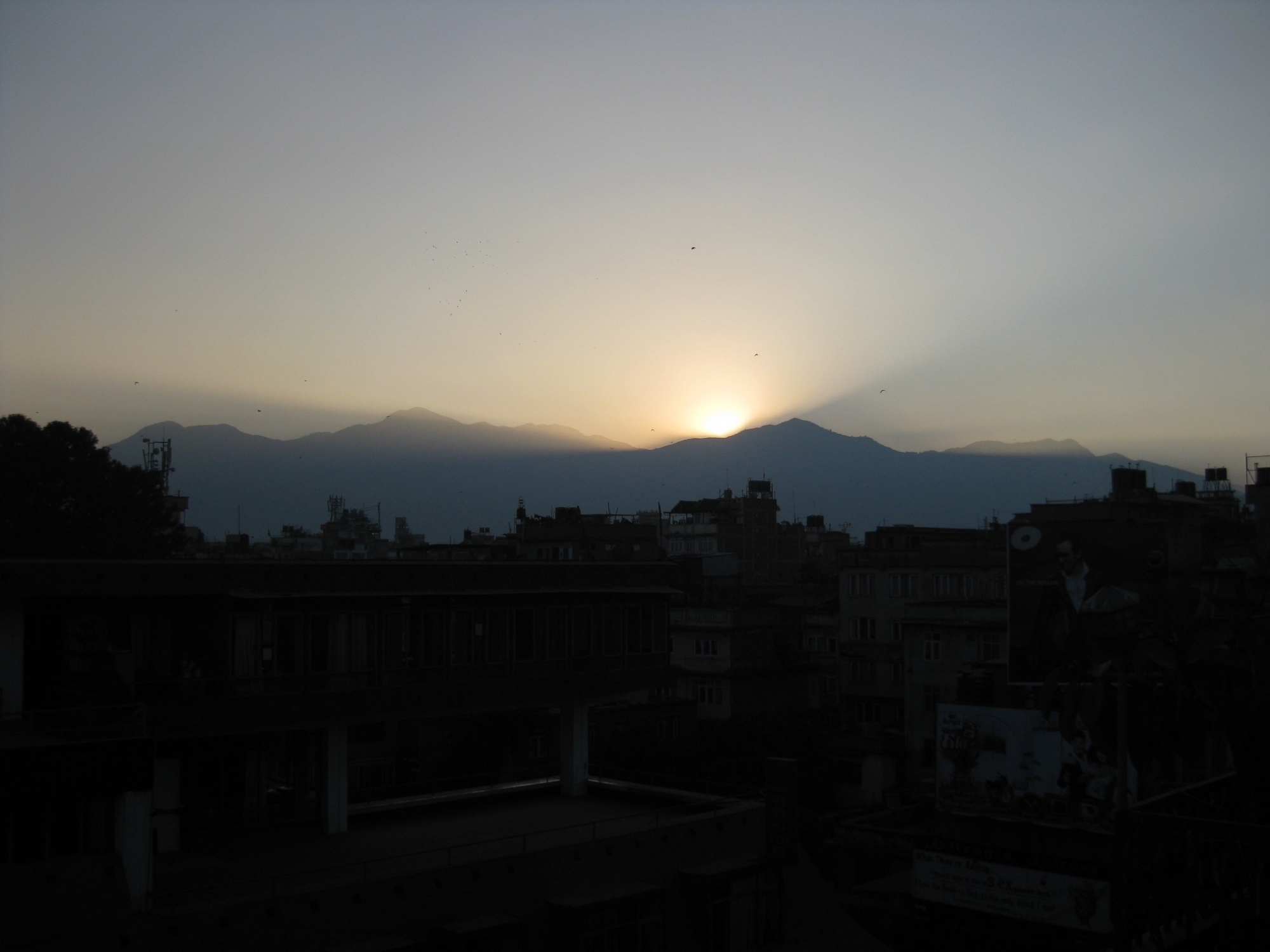Note: a slightly modified version of this article was published by Elephant Journal under the title How to Break the Epidemic of Violence.
Another mass shooting has rattled the American psyche: nine black people were killed by a white shooter in a Charleston, SC church.
A sampling of reactions from current and soon-to-be presidential candidates contains all the buzz words we’ve come to anticipate from such tragedies: “senseless”, “evil”, “revulsion”, and “outrage”. At a time like this, we expect our politicians to show they care, and this is how many of them do it—with anger. They condemn the action as “evil” and heap outrage upon it.
At the other end of the spectrum, Jon Stewart, in a somber opening monologue bereft of jokes, voices the despair that I am sure many people are also feeling—despair that the American people will seemingly do nothing, yet again, to prevent such an act of mass violence from recurring.
Whenever we encounter human behavior beyond what we would ever consider committing ourselves, we approach it from one of two positions: an attempt to understand, or no attempt to understand. Aversion contributes nothing to a solution, whereas an honest attempt to understand is a healthy response that can have a positive impact, provided it comes from a place of openness. If it is merely a feeling mired in antipathy, it is not likely to lead to true empathy. And how else can we begin to address a problem until we truly understand it?
Unfortunately, most attempts at understanding are not earnest and cut short when a simple answer presents itself. When people believe they’ve found that one thing—that one procedure that wasn’t in place—that one failing in an otherwise functioning society—they abandon the search feeling empowered, knowing that society is never perfect, but there was a solution here if only we saw it sooner. This mystery-solved, feel-good answer is a false satisfaction that the media sells us.
I understand. We only have so much energy to invest in life’s many horrors before we’re swept on to the next one. But let’s try to dig deeper here.
The usual suggestions proposed at times like these should sound familiar:
- Be quicker to recognize the warning signs of deviant behavior.
- Scale back the media attention such tragedies attract.
- And, of course, pass stricter gun control legislation.
It’s all been said many times before, and yet here we are.
The first suggestion puts us always on the defensive. It would make us sentries on the wall, surveying the landscape for the next sign of attack. It makes enemies of our fellow man, perpetuating the dichotomy of us versus them. It does nothing to address the underlying causes of certain individuals’ feelings, opinions, and behaviors.
The second suggestion is a fool’s dream. Short of a government takeover of all media—and a mountain of benevolent legislation transforming said media into a non-profit public service enterprise—we will never get media outlets to back off on stories of this sort. There’s too much profit in it, and a profit-driven industry will always pursue it.
The third suggestion is blind to the obvious trend in technological development. For the vast majority of human history, the most damage a deranged individual could have done was with a large stick. He could have run around clubbing people until the village stepped in to stop him. Today, a homemade pressure cooker bomb can kill and injure hundreds. As of two years ago, anyone can make a 3-D printed gun. Step back and look at the trajectory. Realize how far we’ve come—how empowered every individual is as a result of developing technology. Unless an improbably effective dystopian government strips us all of our liberties, increasingly destructive technology will increasingly be in the hands of any individuals who want them.
The real answer—the complex answer to the broad view of this situation—is much deeper.
It’s going to sound simpler than it is. You might laugh, or roll your eyes, or call me naïve. Some will brush it off as new-age hippie nonsense. Others will label it an impossible goal. But if you’ll bear with me, I’ll try to convince you.
Love.
The answer is simply love.
Forget about the topic of hate for a moment. If Dylann Roof was loved—if he had parents, friends, and mentors who loved him—he couldn’t have done this. He wouldn’t have been capable of it. There wouldn’t have been any room for hate in his life.
I’m reasonably sure that one of the first thoughts you’re reaching for is, “how do we as a society engineer greater love?” Better social welfare programs? Better schools? Better employment opportunities?
Maybe poverty was a primary factor that led him down this path. Maybe a broken education system failed him, or he had no employment prospects where he lived. If Roof had some modest affluence, perhaps that fear he felt—that bitterness—that marginalization—wouldn’t have grown to such an out-sized scale.
Maybe it was purely racism, taught to him at home, at school, by society on a larger scale, or a combination of all three. Maybe we need to be policing child behavior more vigilantly in schools. Maybe we need strictly enforced no-tolerance policies regarding hate speech. Some level of authority could have intervened with Roof long before people died.
To which I say stop.
Please, stop thinking along these lines. This avenue of thought is why nothing ever changes.
Our society is dysfunctional at best. How could it not be? It is built by people, and we are far from perfect. Government cannot stop this epidemic of violence sweeping America. No amount of investment in social welfare programs—no change in the country’s schools—no increased level of policing at any level—will stymie it.
Only love will.
And when I say ‘love’ I mean the love that we, as individuals, feel for one another. We need to look on all people—or at least those of our countrymen—as our brothers and sisters. We need to think of them not as other-than-us, but as one-of-us. Everyone, without exception.
Now, I hope, you begin to see the complexity. Love is only a solution here if it is applied at all levels of society, big and small. Here in 2015 America, there is a marked absence of it. There is little sense of togetherness. Many of us don’t know our neighbors and don’t care to. We don’t seek to understand each other but rather to carve out a safe pocket from which we seldom emerge. We worship money over integrity. We claw over each other for opportunities to advance. We celebrate an endless lineup of reality TV shows where people treat each other abominably. The media sells us fear and mistrust every hour of every day.
And then we wonder why the mind of Dylann Roof cooked up a delusional reality in which it was him versus all African Americans.
But, you counter, it’s easy to love when life is going well for you. Try to feel love for everyone when you grew up without it. Broken households, unemployment, and a lack of basic necessities make a life of love very hard. Let’s fix those things first, and love will be easier.
Stop. I know you think your heart is in the right place, but please, stop right there.
You’re still looking at this backwards. You’re trying to solve society’s problems and expect to receive love as the byproduct. You’re trying to engineer love.
It’s never going to work.
Love is a choice, and it starts with every one of us. It’s a personal responsibility. I think that’s why politicians offer nothing but sympathy tinged with outrage during these tragedies—they know that there is no government-created silver-bullet solution possible. Or why people like Jon Stewart are so despondent—he’s too pessimistic to believe that people are capable of this level of personal responsibility.
But we are. Oftentimes love is a difficult choice—a seemingly impossible choice—but even in the darkest times it’s always a choice we can make.
We don’t usually teach young people that. We instill in them a sense of competition. We teach them self-reliance. We teach them they’re special (which one can only come to believe if others are not special). And then, as a substitute for love, we extol the virtues of charity for all the non-special people out there.
But pure love? A love given freely to equals?
No. We seldom teach that.
If people were taught that this was an option—if we learned, and chose, to love everyone—then many of society’s problems would vanish in the wind. We would no longer see each other as competition. We would no longer hurt each other in an effort to get ahead. We would no longer fight person-against-person, race-against-race, religion-against-religion. We would embrace our shared humanity and tackle life’s problems together.
Here in the aftermath of yet another mass killing, we want the instant gratification of a short-term solution. But there isn’t one. Hatred did not happen overnight, and it will not be cured overnight. This is a process that will take generations. It isn’t a straight line: not every day will be better than the day before. But on the path of love, in the long-term, we will be moving in a decidedly improved direction.
I’ll end with a metaphor. This is the difference between engineering love and accepting love as a personal responsibility: those who would attempt to engineer it are pulling the resilient, thorny weeds of racism from the ground and wondering in surprise why they grow back. But those who accept love as a personal responsibility are creating an environment in which these weeds cannot grow. They will die and never grow again.
In such a world, the nine lives taken at Emanuel African Methodist Episcopal Church could not have happened.



